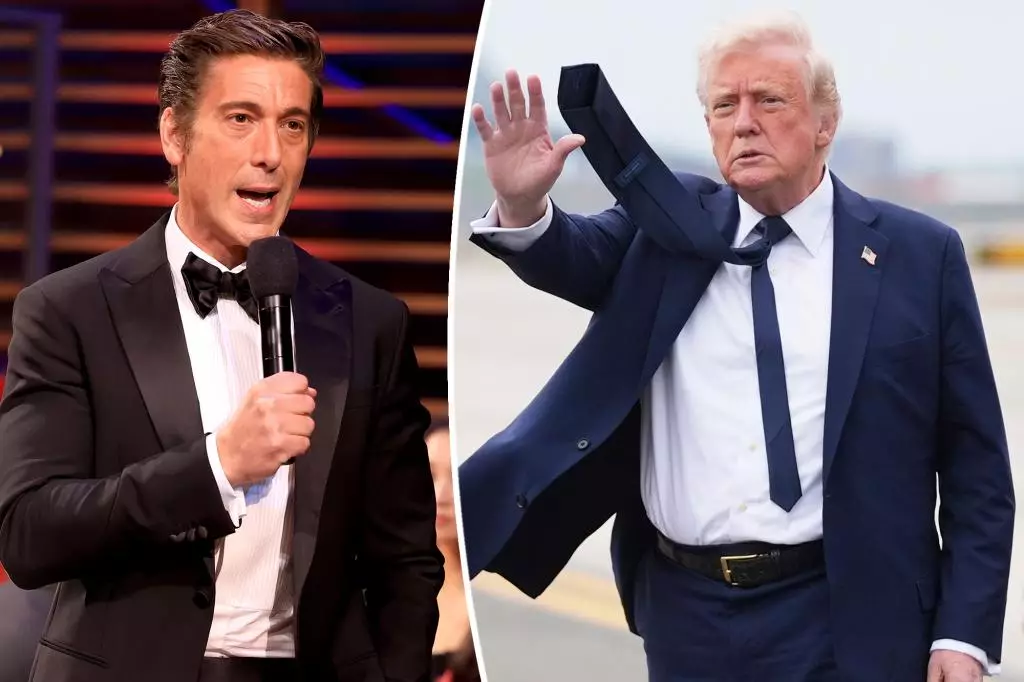In the fast-paced world of political journalism, the choice of interviewer can shape not only the tone but also the implications of an interview. ABC News has made a significant decision that raises eyebrows and critiques their strategic acumen. With a major interview with the President of the United States scheduled, the network has opted for Terry Moran over more prominent figures like David Muir and George Stephanopoulos. Why would ABC bypass their seasoned anchors, who have established relationships and recognized reputations, in favor of someone who lacks the same immediate recognition?
Trump’s Vocal Disdain for Muir and Stephanopoulos
Former President Donald Trump’s well-documented animus toward David Muir and George Stephanopoulos adds another layer to this puzzling decision. Trump’s history of contentious exchanges with the two journalists is not just a display of ego; it speaks to deeper issues regarding the media’s role in politics. After the contentious debate where Muir and co-host Linsey Davis fact-checked Trump, the President’s vitriol escalated. Calling Muir “not legit” and “a real lightweight” suggests a personal vendetta rather than mere professional disagreement. This animosity raises questions about the future of journalistic integrity and the extent to which political figures can dictate the terms of engagement with the media.
The Choice of Interviewer: An Analysis
By choosing Terry Moran for this exclusive interview, ABC seems to be banking on his reputation as a solid correspondent rather than the star power of Muir or Stephanopoulos. While Moran is competent and has significant journalistic experience, one must wonder if this decision reflects a calculated risk or a desperate move. Will Moran’s lack of celebrity status hinder the potential impact of the interview? Viewers might be more intrigued by the established personalities whom they trust to deliver hard-hitting questions, rather than a lesser-known face who does not command the same attention or prestige in the public sphere.
Implications for ABC News and Public Perception
The implications of this decision are wide-ranging. First, it reflects how much the relationship between media and politics has changed. Trump’s ability to dictate who he speaks to signals a worrying trend where affecting journalism on a political level may overshadow the news organization’s integrity. Second, in a war of narratives, this could lead to public dissatisfaction with ABC News, particularly when comparisons are drawn to the more widely recognized hosts who may have been more equipped to handle the conversation with the gravity such a historical political figure embodies.
Ultimately, ABC News’ choice to move forward without Muir or Stephanopoulos not only shifts their narrative but also suggests a capitulation to the whims of a polarizing political figure. The choice may have been practical for avoiding conflict, yet it raises pressing questions about credibility, accountability, and the future of political interviews on primetime television. As the media landscape evolves, so too must the strategies employed by news organizations to engage effectively with those in power.

